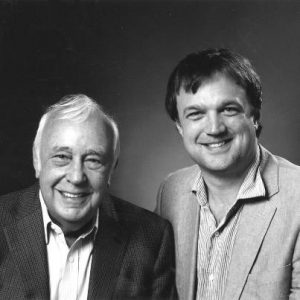Robert Skidelsky is Emeritus Professor of Political Economy at the University of Warwick, and a fellow of the British Academy in both history and economics. He has written numerous books, including a highly regarded three volume biography of the economist John Maynard Keynes (1983, 1992, 2000).
Edward Skidelsky is the son of Robert Skidelsky. He is a Lecturer at Exeter University, specializing in aesthetics and moral philosophy. His doctoral research was published as Ernst Cassirer: The Last Philosopher of Culture (2009).
Book Basics
In a consumer oriented world that always hungers for more, Robert and Edward Skidelsky offer much needed perspective about the good life. They envision a more balanced world in which there is less pressure to consume and less income inequality. And, they recognize that while such a world could come about in many ways it is unlikely to be realized without religion.
John Maynard Keynes envisioned a world in which his grandchildren would work only fifteen hours a week yet earn as much or more than those in his generation thanks to advances in technology and more even distribution of income. In this futuristic world, leisure would be primary. Keynes’ forecast of the increased income and productivity were accurate, but the fifteen hour work week hasn’t been realized because several of his other assumptions were incorrect. As a result, today “many lower paid workers are working less than they want to, while many of the rich are working more than they need to” (p.23). In the early twenty-first century, income inequality is growing rather than shrinking and rather than focusing on enough most have insatiable appetites for more.
Blending philosophy and economics, the Skidelskys construct a way forward that challenges many capitalistic assumptions. This new framework requires a different understanding of wealth, happiness, and economic progress. This new perspective assumes that the basic goods are the good life rather than simply a means to achieve it. Using the criteria that basic goods are those things that can be viewed as universal, final, sui generis, and indispensable, the Skidelskys propose seven such goods: health, security, respect, personality, harmony with nature, friendship and leisure. The items comprising the good life cannot be bought or sold. The future is not one focusing on unending economic growth, but of re-balancing society to enable the pursuit of the good life by an increasing number of people.
So What?
The good life is not a life of more, newer, bigger and better nor is it a life of unrestrained capitalism. While the good life is attainable most settle for something inferior. People settle for many reasons, including a lack of awareness that something far richer exists or an uncritical acceptance of the current norms despite awareness of other possibilities.
- Do you believe you are pursuing the good life that the Skidelskys envision? Why/why not?
- Review the Skidelskys list of basic goods. How would you rate yourself for each?
- Write your own definition of “the good life.”
- How much is enough? How would you know when you reached this milestone?
Robert Skidelsky and Edward Skidelsky. How Much is Enough? Money and the Good Life (Other Press, 2012). ISBN: 9781590515075.
